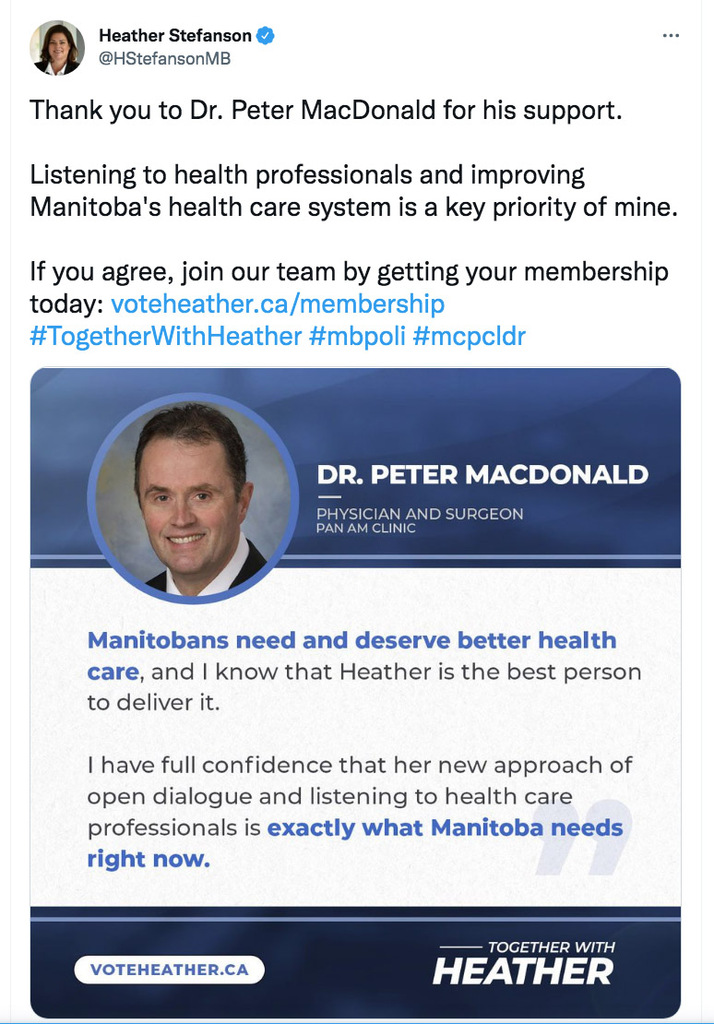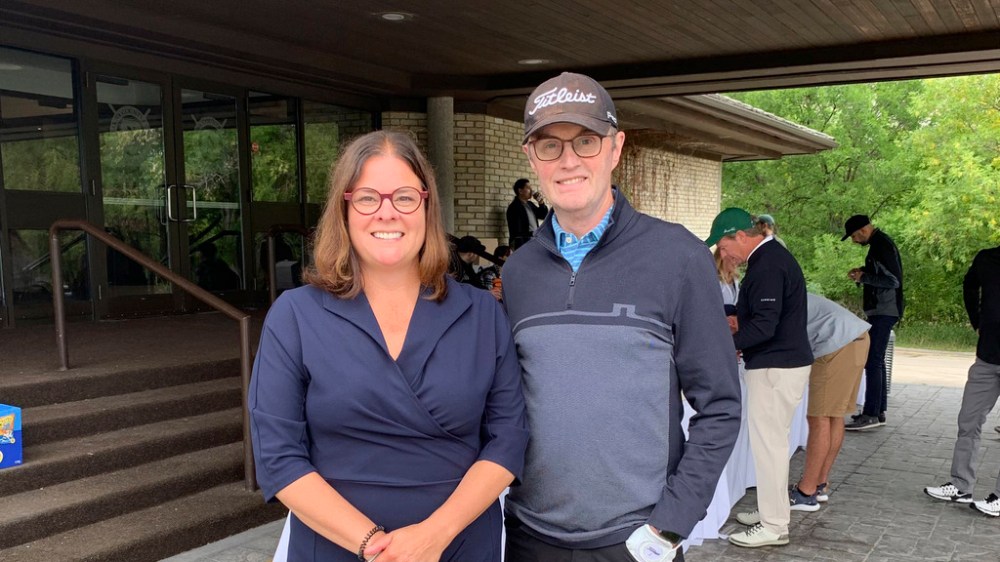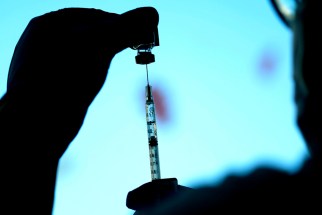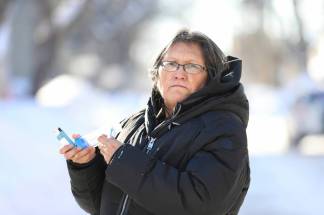Partisan supporter at helm puts political spotlight on task force
Read this article for free:
or
Already have an account? Log in here »
To continue reading, please subscribe:
Monthly Digital Subscription
$0 for the first 4 weeks*
- Enjoy unlimited reading on winnipegfreepress.com
- Read the E-Edition, our digital replica newspaper
- Access News Break, our award-winning app
- Play interactive puzzles
*No charge for 4 weeks then price increases to the regular rate of $19.00 plus GST every four weeks. Offer available to new and qualified returning subscribers only. Cancel any time.
Monthly Digital Subscription
$4.75/week*
- Enjoy unlimited reading on winnipegfreepress.com
- Read the E-Edition, our digital replica newspaper
- Access News Break, our award-winning app
- Play interactive puzzles
*Billed as $19 plus GST every four weeks. Cancel any time.
To continue reading, please subscribe:
Add Free Press access to your Brandon Sun subscription for only an additional
$1 for the first 4 weeks*
*Your next subscription payment will increase by $1.00 and you will be charged $16.99 plus GST for four weeks. After four weeks, your payment will increase to $23.99 plus GST every four weeks.
Read unlimited articles for free today:
or
Already have an account? Log in here »
Hey there, time traveller!
This article was published 25/01/2022 (1413 days ago), so information in it may no longer be current.
Premier Heather Stefanson’s decision to appoint a high-profile doctor who supported her party leadership bid last year as head of Manitoba’s health-care wait time task force could spell trouble for the Tories down the road.
Winnipeg surgeon Dr. Peter MacDonald was named chairman of the diagnostic and surgical recovery task force in December — less than three months after he publicly endorsed Stefanson during the Progressive Conservative race.
“Manitobans need and deserve better health care, and I know that Heather is the best person to deliver it,” MacDonald is quoted as saying in an advertisement posted on Stefanson’s Twitter feed in September 2021. “I have full confidence that her new approach of open dialogue and listening to health-care professionals is exactly what Manitobans need right now.”
The ad, which includes the political slogan “Together with Heather,” displays a photo of MacDonald and describes him as a physician and surgeon at the Pan Am Clinic.
Similar ads were posted by Stefanson during her campaign to highlight endorsements from other influential Manitobans, including Mark Chipman, executive chairman of True North Sports and Entertainment Ltd.
Stefanson thanked MacDonald for his support in the tweet, saying: “Listening to health-care professionals and improving Manitoba’s health-care system is a key priority of mine.” She urged her Twitter followers to “join our team by getting your membership today” at her campaign website.
Big-name endorsements can boost membership sales and help candidates win political party leadership races. Stefanson won by a slim margin — 51 to 49 per cent of votes — over opponent Shelly Glover.
MacDonald is head of orthopedic surgery at the University of Manitoba’s Max Rady College of Medicine and chief innovation and research officer at Pan Am Clinic.
There’s little doubt he has valuable expertise to offer on how to reduce Manitoba’s wait times. However, he’s also in a political position — one that will ultimately involve making recommendations on how to allocate scarce resources, including options such as the use of private clinics.
Some of those recommendations may be controversial.
MacDonald is already embroiled in a public spat with the Canadian Spine Society. The organization is opposed to the Stefanson government’s announcement last week to send up to 300 Manitoba patients to a North Dakota clinic for spinal surgery to help reduce provincial wait times.

The group’s director, Hamilton Hall, was quoted by the CBC as saying it was a mistake to redirect resources to the United States. He said it will cost government more than performing the surgeries in Canada.
MacDonald disputed the claim, arguing the cost is comparable to what the province would pay in Manitoba.
Regardless, it’s the kind of political conflict MacDonald will likely find himself in as the task force floats more ideas.
Because he is a political supporter of the premier, the public may have difficulty discerning between his role as an expert surgeon and someone who helped Stefanson get elected leader of the PC party.
“MacDonald was selected as chair for his strong expertise in orthopedic surgery and his focus on innovation, which has supported patients in their recovery and return to living active lives,” a Dec. 8 government news release says.
That may be, but MacDonald was also selected for his political loyalty to the premier. That part was not made public when he was appointed.
With MacDonald at the helm, it will be more difficult to separate politics from public policy. Health-care professionals and the public may be left wondering if ties to the premier are driving some of the task force’s recommendations.
Has there been political direction given to MacDonald? If so, what kind? How would the public know?

How much of what MacDonald communicates to the public will be political spin from the premier’s office, as opposed to evidence-based decision making?
Choosing a partisan supporter as the head of the task force could end up being more of a hindrance than a help for the Tories.
If things go sideways with wait times between now and the next provincial election in 2023, the politicization of the task force could be seen by voters as a contributing factor.
tom.brodbeck@freepress.mb.ca

Tom has been covering Manitoba politics since the early 1990s and joined the Winnipeg Free Press news team in 2019.
Our newsroom depends on a growing audience of readers to power our journalism. If you are not a paid reader, please consider becoming a subscriber.
Our newsroom depends on its audience of readers to power our journalism. Thank you for your support.







